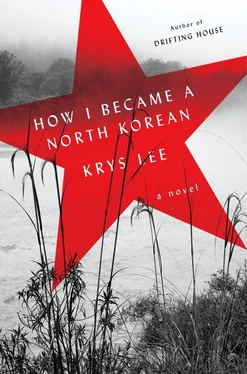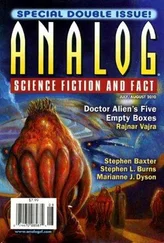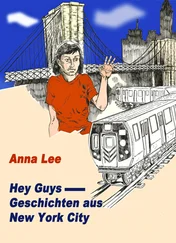Borders aren’t a random obsession of mine — unlike my affection for the double helix or Burmese temples — since they’d already changed my life. My family was Joseon- jok, ethnic Koreans who’d lived alongside the Han Chinese in northeastern China. That is, except during the madness of China’s Cultural Revolution when my grandfather crossed into North Korea, where my mom was born. If my mom and her family hadn’t recrossed while they still could, I might have been born in North Korea. As it was, I still had relatives on both sides of the river, and having grown up in northeastern China until I was nine, I could pass for a North Korean from the Hamgyong region when I spoke Korean, like many in the Chinese border towns.
Still, when the plane landed in Yanji and I didn’t see my mom anywhere, I felt disoriented. The airport’s fluorescent yellow and blue plastic chairs, the glass-walled facade, the tidal wave of concrete wasn’t the China of my memory. I felt, suddenly, American, though my only passport was Chinese.
The ground tipped as I scanned the pointillist painting of black-haired heads before me. I blamed jet lag for the vertigo of crossing, for that shift when language jostled out of place, and my mind sought to reverse the order of words in my head and became part of another geography again. Thankfully, I remembered that I was supposed to call my parents with my phone card once I landed. Plans, another anchor.
My mom didn’t pick up the phone, but my dad answered in one ring. He said, “You haven’t met Ku ajeoshi yet?”
“Ku ajeoshi ?”
“Eomma must have lost her cell phone on her last work trip, but I’d already bought the plane ticket.” He took a deep breath. “I didn’t want to worry you.”
He told me that this Mr. Ku, his old school friend, was holding a sign with my name on it. He would drive me all the way to my mom’s town. I felt dismayed. There was little worse than hours of interrogation by a stranger who acted like he knew you, so I insisted on being dropped off at the bus station. It was my hometown, too, and a small one at that. My dad objected.
“Half the people in town know us,” I said. “I’ll be fine.”
“You’re not going unescorted for a minute, after what you did.”
“Dad, I’ve taken survival tests and camped across half the Sierra Nevada practically alone. And I’m of legal age to drive a car, pilot a glider, even get married. I’ll be more than fine.”
When a dot of a man across the hall waved at me and started walking my way, I pretended to give in but began drafting plans. After years of surviving American public schools, I was pretty fearless.
“Daehan!” The man, whose upper torso reminded me of an Asian Santa Claus, and the lower, a sparerib, thumped me on my back as if he was my friend. “I haven’t seen you since you used to spit on your favorite foods, so no one else could have any of it. I’ll never forget how you sucked your toes, too.”
“All babies do that.”
He laughed. “You were six. Not exactly a baby.”
It didn’t get any better in the eatery we settled into. Mr. Ku was even more heavy-handed with the memories than I’d expected. Halfway through breakfast, I said I needed the bathroom, which was located conveniently on the building’s second floor, and gave him the slip. I tucked a note of apology under the car’s window wipers before jumping on the first local bus heading out of town that passed me, avoiding the central bus station. Wherever I ended up, I trusted I could eventually transfer to the one I needed since buses were a way of life in China.
I transferred onto a second bus, then later a third. I kept my feet a safe distance from my seat partner’s chicken, which was squashed into a cage. “I’m going home,” I whispered. “I’m finally going home.”
• • •
My hometown wedged in a forgotten corner of China felt like it belonged to another self. After six years away, its buildings seemed to me as plain as the people, worn out like saggy granny panties. On the main strip there were song rooms, bars, and clubs with Korean signs in neon displayed above the scarlet-red Chinese characters. It was hard to imagine my bow-and-arrow-gripping ancestors roaming these stark mountains and plains, a fact that China tried hard to ignore so that it could claim the land had always been theirs. Or to imagine North Korea’s so-called Great Leader journeying through the land with his bandit group of rebels and first wife in tow, on his way to Russia. Those times must have required desperate courage.
I hitched up my belt, heavy with emergency rations of dried tofu and nuts, bought a chunk of fresh tofu from a vendor, and bargained with a cyclo driver. When he tried to rip me off, I began walking toward my mom’s apartment through the landscape of comforting faces that looked so similar to mine.
I headed down a ventricle of paved streets in the town — there were more than I’d expected — and mapped a grid of old apartments in my head as I walked. I passed snack stalls, corners where kids might target the ones in uniforms from better schools and, just maybe, target me. I sampled dumplings, spun sugar, and grilled chicken on a stick until my mouth flooded with the tastes of my childhood. The crowd thickened and thinned around me like oil. I passed twelve people treading by slowly, nine trotting onward rapidly, approximately one out of five of them wearing lace-up shoes. I dodged a car that rumbled onto the sidewalk and had to dart into an outdoor market when I saw the owner of a Han Chinese restaurant that my family knew. Inside, I observed a moment of silence for seven slaughtered carcasses of pigs. Finally, I felt it: the thrill of being out of my time line, in China, a body returning to the past to escape the past.
After asking for directions from a few people, sometimes in Mandarin and sometimes in Korean, I arrived exhausted at my mother’s building.
The low-rise apartment building was covered in dirty yellow tiles and laid out in a Soviet-style grid. I walked past men playing mahjong in the lobby, their syllables like music to me, up to the fourth floor until I was standing at her door that was covered with bright scarlet and gold ads. All my rehearsed speeches morphed into uncertainty. Chances were high that my mom wouldn’t be happy with me. After all, I was half the reason they’d left for America in the first place. I pressed the buzzer and waited. I was desperate for simple solutions. My mom, keeper of the family flame, our rainmaker and solution seeker, chair of all committees, would diagnose what was wrong with me.
She called out from the apartment, “Who is it?”
I called back, “A hundred-and-fifty-pound surprise in his favorite military fatigues!”
Feet battered the floor behind the front door, other doors opened and slammed, as if a dozen people were moving under my mom’s orders. When the door finally opened and I presented myself to her like a birthday present, my mom squinted through the gap in the door as if trying to decide who I was.
She still looked as old-fashioned as an apple but had changed somehow. It was as if the geography had renewed her. Her short hair had grown out long and feminine, her nails were polished, and the perfume of honeysuckle instead of rice crackers wafted from her. I became worried as frown lines deepened between her eyes. Only when she threw her arms open wide did her mom face — there were no other words for it — finally assert itself.
“My Dumbo! My Daehan!” Her smile was bright, her voice loud enough to wake up statues. “ Naeh ahdeul! ”
Naeh ahdeul. My son. Those words made me ache. She tugged at my ears. “My wonderful Dumbo, you must be a ghost because my ahdeul is in America. How did you get here? How did you ever find me?”
Читать дальше












